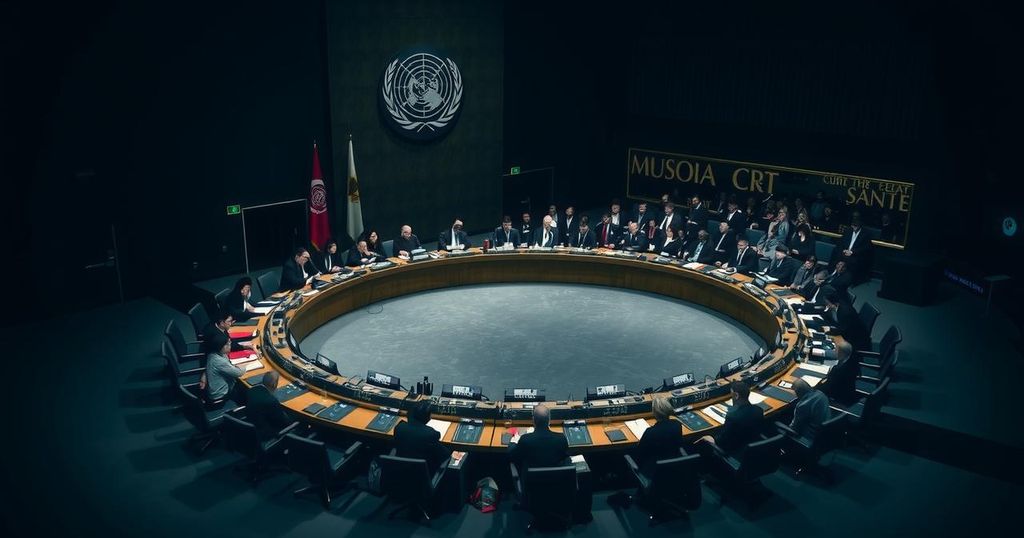COP29 negotiators in Azerbaijan face challenges in climate finance discussions after the G20 meeting offered mixed feedback, recognizing the need for trillions to assist developing countries but lacking clarity on key issues, such as fossil fuel transitions. Time is running out with only days left, leading to heightened urgency for a cohesive agreement from all nations involved.
Baku (AFP) – As COP29 negotiations proceed in Azerbaijan, delegates are striving to resolve a deadlock following key commitments made by G20 leaders in Rio de Janeiro regarding climate finance. With only three days remaining in the conference, the G20’s declaration underscored the necessity of increasing financial resources for developing nations, but it left significant issues unaddressed, particularly regarding fossil fuel transitions. Yalchin Rafiyev, Azerbaijan’s chief negotiator, expressed optimism regarding the G20’s influence, while UN climate chief Simon Stiell emphasized the urgency for nations to collaboratively close existing gaps in negotiations. Rich countries have been urged to enhance their annual financial commitments from $100 billion significantly to support developing nations’ climate adaptation and clean energy transitions. However, negotiators continue to express frustration over unresolved disputes concerning financial contributions and the nature of financial support. Activists and diplomats responded critically to the G20 statement, highlighting its vagueness on climate finance guidance and its lack of commitment to fossil fuel cessation. While some negotiators considered the G20 statement a positive step, others, such as Michai Robertson of the Alliance of Small Island States, conveyed skepticism regarding its implications for substantive progress. Members of developing nations’ groups, including Adonia Ayebare of the G77+China, voiced concerns specifically about the need for public funds rather than loans, stressing the importance of grants in financing climate initiatives. The upcoming draft deal anticipated to be released on Wednesday night must address these key concerns if it intends to foster a cooperative framework for global climate financing. Moreover, the ongoing resistance from certain nations, particularly Saudi Arabia regarding fossil fuel commitments made at COP28, has further complicated the negotiations. As EU climate envoy Wopke Hoekstra stated, the global community must not regress on previous pledges, reinforcing the necessity of unity and collaboration to ensure future success in climate negotiations.
The COP29 climate conference represents a pivotal moment where global negotiators gather to tackle the pressing challenges posed by climate change. The discourse is heavily influenced by previous commitments from groups such as the G20, which recently acknowledged the urgent need to allocate trillions toward climate initiatives in developing nations. Growing concerns about climate finance have emerged as critical points of contention, particularly about the allocation of resources necessary for transitioning from fossil fuels. Developing countries emphasize the need for substantial financial contributions, contrasting with developed nations’ perspectives on including private sector involvement and expanding donor profiles to include emerging economies.
In conclusion, the COP29 negotiations illustrate the complexities of reaching consensus on climate finance amidst competing national interests and historical commitments. As delegates work toward finalizing a deal, pivotal challenges remain, particularly regarding the allocation and nature of financial support for developing nations. The necessity for transparent and accessible funding mechanisms will determine the efficacy of global climate initiatives moving forward, underscoring the importance of cohesive action in the face of climate change.
Original Source: www.france24.com






